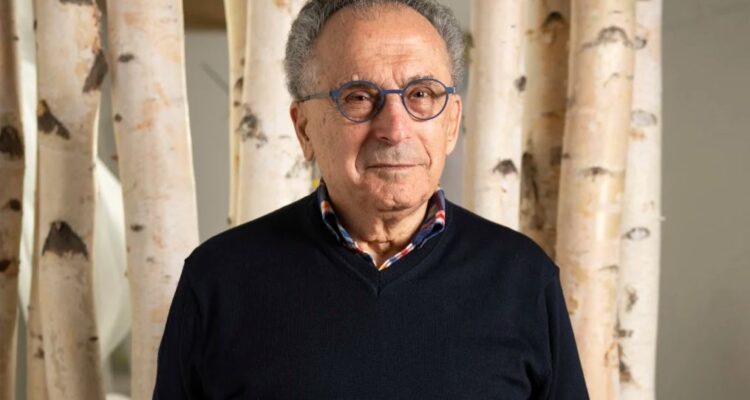Holocaust survivor Peter Gaspar believes he is alive today because of his father’s Christian friends, domestic staff and colleagues, who hid the Jewish family after the Nazis occupied Bratislava in what is now Slovakia.
“We hid in people’s homes for 2½ years in their cellars and attics and roof cavities and in their cupboards and garden sheds,” said Gaspar, 86, who immigrated to Australia with his parents in 1949.
“In 2006, I took my wife, two children and a grandchild to see these people because I wanted them to see who they owe their life to.”
Gaspar is part of an education program in which Holocaust survivors speak to students at the Melbourne Holocaust Museum in Elsternwick.
The museum, formerly known as the Jewish Holocaust Centre, was founded by Melbourne Holocaust survivors in 1984 seeking to combat antisemitism, racism and prejudice in the community.
The museum closed in 2020 for a major redevelopment by Kerstin Thompson Architects and will reopen to the public in October.
Gaspar said his focus was not on the horror of the Holocaust, but the importance of standing up to prejudice.
“The people who stood up were upstanders instead of being bystanders,” Gaspar said.
“The Holocaust didn’t start with gas chambers and murders and executions. It started with stereotyping, prejudice, discrimination, hate speech; and once people were conditioned to hate, then came the very systematic, industrially organised murder.”
Read the article by Jewel Topsfield in The Age.

